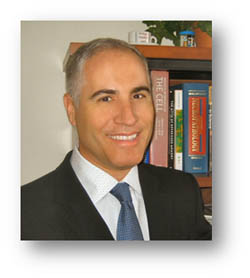Contact:
YCR P53 Research Unit
Department of Biology
University of York
YORK YO10 5DD, UK.
Tel (within UK):
(01904) 328620
Fax: (01904) 328622
Tel (outside UK):
+44-1904-328620
Fax: +44-1904-328622
E-mail: ajm24@york.ac.uk

Frank LaFerla, PhD
Chancellor’s Professor and Director
Institute forMemory Impairments and Neurological Disorders
Dr. Frank LaFerla is a Chancellor’s Professor in the Department of Neurobiology and Behavior at the University of California, Irvine. He serves as the Director of the Institute for Memory Impairments and Neurological Disorders, and is also a Fellow of the Center for the Neurobiology of Learning and Memory. Dr. LaFerla received his B.S. in Biology from St. Joseph’s University in Philadelphia. His graduate training was completed at the University of Minnesota where he earned his Ph.D. in the field of virology in 1990. He subsequently was a postdoctoral fellow at the Holland Laboratory of the American Red Cross before moving to Irvine as an assistant professor in late 1995.
Dr. LaFerla has received several honors for his research accomplishments including the Ruth Salta Junior Investigator Achievement Award from the American Health Assistance Foundation, Zenith Fellows Award from the Alzheimer Association, UCI Chancellor’s Fellow, Distinguished Mid-career Faculty Research Award, UCI Innovation Award and the Promising Work Award from the Metropolitan Life Foundation for Medical Research. He serves on the Scientific Advisory Board for the Orange County Alzheimer’s Association and the Medical and Scientific Advisory Boards for Sonexa Therapeutics, Akeso Health Sciences, and Signum Biosciences. He is also the associate editor for Current Alzheimer Research and a member of the editorial board of the Neurobiology of Aging and Neurobiology of Disease.
Dr. LaFerla’s research is focused on understanding the pathogenesis of Alzheimer disease, the most common form of dementia among the elderly. His laboratory has developed several transgenic mouse models of neurodegenerative disorders including the first transgenic mouse model of Alzheimer disease that recapitulates the two major neuropathological lesions, plaques and tangles. This mouse model, referred to as the 3xTg-AD mice, has been widely distributed to researchers throughout the USA and over 20 countries throughout the world. His laboratory has used this model to understand the relationship between plaques and tangles and how each affects the development of the other, and more significantly, this model has proven to be invaluable for the pre-clinical evaluation of novel therapeutic compounds.
His research group was also among the first to show that stem cell transplantation could be useful for the treatment of cognitive dysfunction. Findings from his lab show that stem cells promote repair not via a cell replacement mechanism but by performing a “nursing” function. Work in his lab shows that the transplanted neural stem cells produce high amounts of the neurotrophic factor, BDNF, which promotes synaptogenesis. Recently, the lab was awarded $3.6 million from CIRM as part of the Early Translation Grant Program to develop an Alzheimer’s disease therapy involving human neural stem cells.
Liability and Insurance: The organisers will not assume any responsibility whatsoever
for damage or injury to persons or their property during this event.
